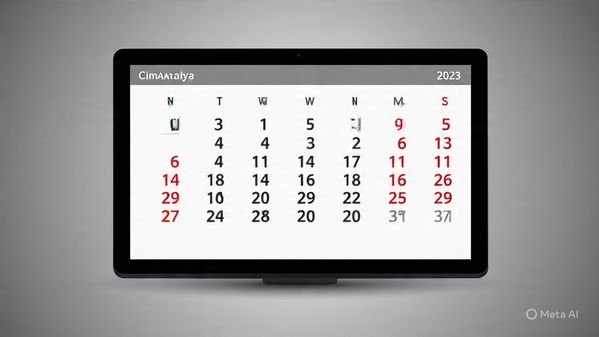The Power of Persistence and Diligence: Why They Still Matter in 2025
We live in an era of instant gratification. Everything from groceries to job offers now moves at the speed of a click. But in this fast-paced world, some values refuse to expire—chief among them: persistence and diligence.
This isn’t another motivational cliché. The reality is, no algorithm or AI model can replace the sheer impact of showing up every day, doing the work, refining your craft, and making incremental progress even when the spotlight isn’t on you.
So let’s dive deep—not into platitudes—but into a grounded understanding of what diligence really means today, how it drives success across industries, and why pairing persistence and diligence remains one of the most underrated power duos of our time.
Understanding the Core of Diligence
What Does Diligence Truly Mean?
At its heart, diligence is consistent, careful, and conscientious effort. It’s not about working hard until you collapse; it’s about working smart, staying accountable, and maintaining integrity through process-oriented focus.
In professional contexts, diligence often shows up in phrases like “due diligence” in law or finance—indicating thoroughness in research and risk analysis. But in everyday life? It’s as simple (and as complex) as following through on your commitments even when nobody’s watching.
How Diligence Differs from Hard Work
Hard work is exertion. Diligence is direction. You can hustle endlessly without progress if you’re working without clarity or focus. But diligennce implies planning, discipline, and checking your work along the way.
It’s not about being busy; it’s about being deliberate.
| Trait | Hard Work | Diligence |
|---|---|---|
| Focus | Task-driven | Process-driven |
| Outcome | Quantity of effort | Quality and accuracy of effort |
| Mindset | “Grind through it” | “Stay steady, refine continuously” |
| Common in | Gig economy, physical jobs | Legal, academic, creative professions |
Why It Matters More Than Ever in 2025
With the rise of AI-generated shortcuts, the ability to stick to rigorous standards has become a competitive edge. In fields like journalism, research, cybersecurity, and product design, diligence is the firewall against misinformation, mediocrity, and technical failure.
In 2025, diligennce is no longer optional—it’s your quality control in an automated world.
Persistence and Diligence: A Timeless Partnership
Why You Need Both
Persistence gets you through the rough patches. Diligence ensures you’re not just spinning your wheels. Together, persistence and diligence create a powerful feedback loop. When you persist, you keep moving. When you’re diligent, you make sure you’re moving in the right direction.
Think of persistence as stamina and diligennce as navigation.
Real-World Story: The Rise of Canva
When Melanie Perkins pitched her startup Canva to investors in 2011, she was met with hundreds of rejections. What kept her going? A blend of stubborn persistence (pitch after pitch) and strategic diligennce (refining the pitch, expanding the prototype, hiring the right team).
By 2025, Canva is valued at over $25 billion. That didn’t happen overnight—it happened because persistence was matched with careful, adaptive diligennce.
The Silent ROI of Diligence in the Workplace
Diligence doesn’t always get a standing ovation. It’s the quiet code review, the proofreading before a press release, or the spreadsheet double-check that prevents a six-figure error.
Managers in 2025 aren’t just hiring fast thinkers—they’re hiring thorough thinkers. And employees who consistently deliver high-quality, error-free work are quietly climbing the ladder.
Building a Diligent Life: Personal and Professional Applications
Time Management Is a Diligence Strategy
Ever feel like there’s never enough time? Often it’s not about hours; it’s about attention. Diligent professionals know how to protect their time:
-
They batch similar tasks.
-
They eliminate digital noise.
-
They leave margin for quality control.
Using tools like Notion or Todoist effectively isn’t about aesthetics—it’s about building a diligent workflow that ensures things don’t slip through the cracks.
Diligence in Health and Habit Formation
You don’t need a 5 a.m. routine to be diligent. You just need consistency.
A 2025 study from the University of Toronto found that people who tracked their hydration and sleep with smart devices were 43% more likely to maintain healthy habits over 6 months. Why? Diligent self-monitoring reinforced behavior changes.
Here’s a simplified breakdown:
| Habit | Diligent Action | Long-term Benefit |
|---|---|---|
| Fitness | Daily 15-min tracking | Higher adherence & injury prevention |
| Nutrition | Weekly meal planning | Reduced junk food intake |
| Mental Health | Logging mood changes | Earlier detection of burnout |
Creative Work Thrives on Diligence, Too
From musicians to screenwriters to developers, the myth of sudden inspiration has faded. What thrives instead is the daily practice. Even when inspiration doesn’t strike, a diligent creator shows up and iterates.
Stephen King once said, “Amateurs sit and wait for inspiration; the rest of us just get up and go to work.” That’s diligennce in its rawest form.
Common Misconceptions Around “Diligence”
1. “Diligent People Are Perfectionists”
False. Diligennce isn’t about perfection—it’s about progress through discipline. Perfectionists often procrastinate; diligent people ship consistently, improving as they go.
2. “You Either Have It or You Don’t”
Also untrue. Diligennce is a skill, not a personality trait. It can be learned, practiced, and refined like any other competency.
3. “Diligence Slows You Down”
Actually, it speeds you up in the long run. It prevents backtracking, rework, or PR disasters. In a world of constant pivots, the slow-and-steady workers often overtake the fast-but-fragile ones.
The Practical Roadmap to Cultivating Persistence and Diligence
You don’t build diligence overnight. But here’s how you can start building the muscle today:
-
Set Clear, Measurable Goals
Know what success looks like in advance. Vague goals = scattered focus. -
Break Tasks Into Systems
Don’t rely on memory. Build a checklist or template for repeatable actions. -
Review, Reflect, Refine
After each major task, take 10 minutes to analyze what worked and what didn’t. -
Track Progress Visually
Use visual cues like progress bars, habit streaks, or public accountability tools. -
Eliminate Distractions
Diligennce requires depth, and depth requires silence—physical, digital, and emotional.
Final Thoughts: Success Is Still Built on Persistence and Diligence
In a world addicted to speed, it’s easy to overlook the quiet power of consistency. But the most impactful breakthroughs—whether in art, science, or entrepreneurship—still belong to those who combine persistence and diligence.
This isn’t just old-school advice repackaged for 2025. It’s a battle-tested blueprint that the world’s most resilient professionals quietly follow.
So if you’re stuck, tired, or tempted to cut corners, remember this: Do it slowly. Do it right. Do it again tomorrow.
FAQ: Persistence and Diligence, Answered
Q1: What’s a quick way to know if I’m being diligent enough?
If you’re double-checking your work, staying organized, and delivering consistent quality—even on tasks nobody sees—you’re probably on the right track.
Q2: Can I be diligent without being persistent?
Yes, but it’s not very effective long-term. Diligence without persistence results in bursts of good work that fizzle out. You need both to sustain momentum.
Q3: I tend to lose motivation. How can I keep up with diligence daily?
Track your wins, even small ones. Use visual progress tools and reward yourself after key milestones. Diligence doesn’t have to be joyless.
Q4: Is diligence more important than talent?
In many fields—especially ones that require precision—yes. Talent gets you in the door. Diligence keeps you in the game.
Q5: How do companies measure diligence in employees?
Often through reliability, quality of output, error rates, and how well deadlines are met. It’s not about speed—it’s about consistency and trustworthiness.
Q6: What are some tools to help improve my diligence?
Try apps like Notion for task systems, Habitica for gamified routines, and RescueTime to monitor where your digital focus goes.


![Swimsuit Edition [ABBB] - 1.20 21 Swimsuit Edition - Chapter](https://newzio.pro/wp-content/uploads/2025/07/AQN_u332c2tRFy_6zmICQjgeTpRyLz0oTYkJoZAwlw8OJZdfnCvwKawGC-HWhremQ33DTul7DJAR5q1zgH0Y2X59zraz-AleA5Ddx6HKSI-KGUJiB4FwDCM2e_UfRPAgFt7sa2KelpwXkczEnPTwbXyk1RSP.jpeg)


Leave a Reply